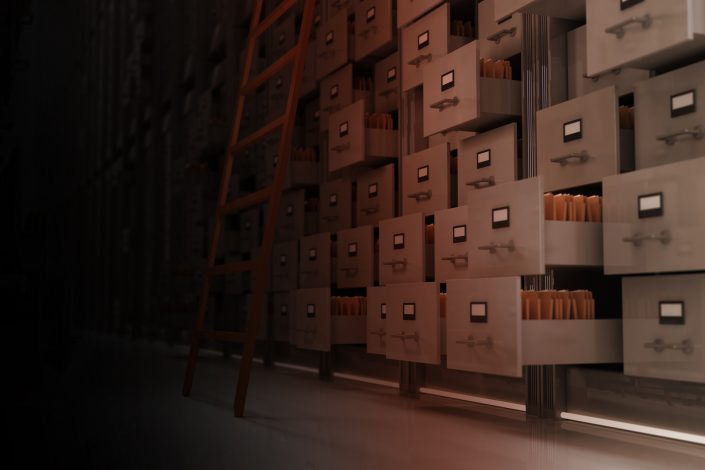Offsite storage vaults are your organization’s blind spot. You might not have thought of them in this way before, but this is essentially what they are. They are off-site and out of mind, and unfortunately, you are typically not aware of the risks of using these facilities until it’s too late.
So what are these risks exactly?
1. Tape Degradation
All tapes degrade over time, no matter the storage conditions or climate control you use. As tapes are affected by the environment they are stored in, one has to be careful that the storage provider is doing everything they can to mitigate risks. There are endless opportunities for things to go wrong, and of course you’re not there to make sure that they don’t.
If your tapes are deteriorating in storage, you are not going to know until you get those tapes back. If the vault they are stored in is not maintained at the right temperature or relative humidity, or if a van driver takes a long lunch break leaving your tapes in a hot van for 3 hours, you likely won’t know before the damage is done.
2. Tape Loss
Vault storage companies lose tapes, and they do it on a routine basis. One of the storage companies has a warehouse location called Zone 52. This zone is used as a convenient shorthand to refer to items that they are unable to locate. If you are ever told that your tape is in Zone 52, it means that the tape has been lost. Tape Ark has even checked out tapes for customers which ended up belonging to another company. The storage provider simply packed the wrong ones.
The worst part of this system is that if a tape gets lost, you are not going to know much about it or have the opportunity to do something while there’s still time to act. No alarms will sound, but the damage is done. The potential for data breaches is massive.
In the event that a tape does go missing, you probably won’t know about it – ever. This could mean that by the time you actually need to do a restore, you might discover it’s now out of your hands.
3. Environmental Loss
You may not know this, but the largest tape storage provider has experienced 11 major fires that have burned many of the warehouses and vaults they operate to the ground. Imagine that – a company tasked with offering fireproof and climate-controlled storage has had 11 devastating fires? One of the buildings burned down twice in 10 years!
Globally, some tape facilities have also been lost to flooding, and given that flooding is becoming more common, it doesn’t look good for your collections off-site.
Conclusion
Choosing offsite storage for your tapes has big implications for how exposed you are to really trivial threats. On cloud platforms, contrastingly, every interaction with your data is recorded. You know where it is, what data has been accessed, what changes have been made to it, and what time they were made. Your cloud provider’s threat detection systems are always monitoring your accounts for any signs of unusual activity, allowing you to take pre-emptive action. You are able to react quickly in the event that something does happen, because you know what has actually occurred. You are not having to um and ah for hours over whether your tapes are all where they should be, or whether they are even fit for a restore. You know straight away what needs to be done, and this sort of certainty is what you need post-disaster.
Tape Ark has encountered so many customers who have contracted with big name storage companies and been surprised by all kinds of failings, from misplaced tapes to careless accounting. One of our favorite stories comes from a customer who was given a certificate of destruction for tapes they got back from the storage provider several years later when they closed their account. What guarantee do you have that they are going to take care of yours?
All you have to do is read the end-of-year financial reports from some of these companies to see the many references to warehouses burned down, or courier trucks that have crashed. The physical air gap that the tape consortium pushes is no good to you if your data is still this exposed. You are effectively just trading one set of risks for another.
The more you consider offsite tape storage, the stronger the case against it becomes. You can check out another of our recent posts here to inform yourself further about the risks of this method.






